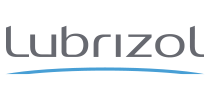A sluggish economy is creating a bleak picture for Spanish cosmetics companies as consumers reduce spend and focus on value for money. Robert Stokes reports from Málaga
This year I have abandoned my premium brand sunscreen in favour of a Deliplus private label product sold by the Spanish supermarket group Mercadona for around €5, saving around €12 in the bargain. “It does the job just as well and everyone’s saying how good it is,” my wife reassured me when I grumbled.
A big switch is taking place as Spaniards who hitherto treasured premium and imported beauty and personal care (BPC) products opt instead for value for money lines. “It really is a concern for the likes of L’Oréal or Beiersdorf,” says Troy Bilbao, sector specialist at independent analyst Euromonitor International. Its latest figures for 2011 show how price pressures are predicted to impact on market value. Although the premium market fell by just 0.3% in value between 2011 and 2010 and the mass market by 1.2%, the situation is expected to worsen this year with estimated falls in market value of 1.9% and 2.8% respectively.
Make no mistake, foreign owned companies and their operations in Spain still dominate the BPC market with Puig being the only genuinely Spanish representative in Euromonitor’s 2011 Top 10 ranking based on retail sales. The list includes: L’Oréal (1); Procter & Gamble (2); Puig (3); Coty (4); Beiersdorf (5); Unilever (6); Henkel (7); Colgate-Palmolive (8); Estée Lauder (9); LVMH (10).
The private label trend has nevertheless become progressively established since 2009 and is very much the dominant theme being picked up by analysts from company interviews in 2012. It is of more than passing interest. Spain accounts for 12% of European Union (EU) turnover in the sector according to ICEX, the Spanish government’s Institute for Foreign Trade.
The reason for the trend towards value for money is the depressed state of Spain’s economy. With nearly a quarter of adult workers and more than half the country’s youth unemployed, people are cautious and spend mostly on necessities. While average earnings have fallen, not least because of public sector pay and spending cuts to reduce budget deficits as a quid pro quo for EU bodies helping to bail out Spain’s banks, taxes have risen. The standard rate of value added tax (IVA) which applies to most BPC products has just been hiked from 18% to 21%.

